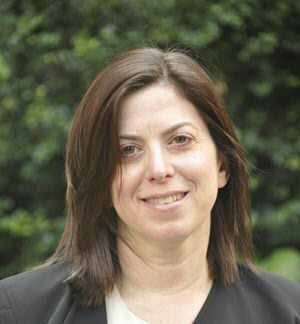Thinking about Thinking in Ancient Jewish Texts

On March 20th, Prof. Hindy Najman will give her inaugural lecture as the fifth Dirk Smilde Fellow at the Faculty of Religion, Culture and Society of the University of Groningen. Professor Najman will work at the Faculty’s Qumran Institute for a period of three weeks.
Hindy Najman is the Oriel and Laing Professor of the Interpretation of Holy Scripture and Director of the Oriel Centre for the Study of the Bible in the University of Oxford, Oriel College. She authored Seconding Sinai (2003), Past Renewals (2010), and Losing the Temple and Recovering the Future (2014). Prof. Najman will accept her position as a Dirk Smilde Professional Research Fellow by way of an inaugural lecture on Wednesday 20 March, titled Scriptural Vitality: Rethinking Philology and Hermeneutics. The lecture will be held in the Courtroom of the Faculty (Oude Boteringestraat 38), or online.
About the inaugural lecture
Scriptural Vitality challenges the view that the Persian and Hellenistic periods constitute a time of decay, a period of “late Judaism,” languishing between an original, vibrant Judaism and the birth of Christianity. Instead, Prof. Najman argues that the Second Temple period was one of untethered creativity and poetic imagination, of dynamism exemplified through philosophical translation, poetic composition, and a convergence of ancient Mediterranean cultures that gave birth to hermeneutic innovation. Building on Nietzsche’s critique of classical philology, and drawing in new ways on the discovery of the Dead Sea Scrolls, Prof. Najman carries out a radical rethinking of biblical studies. Instead of seeking to reconstruct the original text and to find its original author or at least the original context of its production, she celebrates textual pluriformity and transformation, tracing ways in which texts and meanings proliferated within interpretive communities through new performances and fresh articulations of the past. Engaging with thinkers such as Friedrich Schlegel and Peter Szondi, whom biblicists have rarely considered, biblical philology is reimagined as the forward-moving study of the poetic processes by which Jewish communities re-created their past and revitalized their present. The Second Temple period emerges as a golden age of creativity, whose traces may still be discerned in Judaism and Christianity today.
"Wonderful opportunity"
"We are thrilled to have Professor Hindy Najman with us in Groningen as Dirk Smilde Fellow 2024. Prof. Najman has been leading the field for many years. She set the agenda with her Seconding Sinai (2003). In this book she went beyond stale categories such as “pseudepigraphy” and “rewritten Bible” to understand literary texts not as inauthentic rewordings but as “Mosaic discourse.” She defined this as a repeated return to this exemplary and authoritative figure from the past by authors in the Second Temple period to anchor their continuous literary creativity. This approach inspired many scholars in the field. Prof. Najman continued her work with innovative approaches to rethinking literary categories used by modern scholars to understand ancient Jewish literary creativity and to emphasize the vitality of scripture in the Second Temple period. She does so by situating ancient Judaism fully within the Graeco-Roman world, not as a separate entity of thought. Prof. Najman's work engages philology, philosophy, literature, and opens a broad interdisciplinary conversation within the Humanities. In Groningen she will take us on an intellectual journey to "think about thinking" in ancient Judaism. Her stay in Groningen with us is a wonderful opportunity for students to experience Prof. Najman as a teacher, for she is a gifted, inspiring, and supportive scholar and mentor, and we are very fortunate to have her with us in Groningen this Spring semester." says prof dr Mladen Popovic, dean of the faculty of Religion, Culture and Society.
Research seminars
This year’s Dirk Smilde Research Seminars for Master’s students and PhDs address the theme of Thinking about Thinking in Ancient Judaism. The point of the course is to understand how in ancient Judaism there is deep convergence across cultures in the Persian and Hellenistic period which is exhibited in the extant textual traditions as well as in the material cultures. More information about the seminars can be found in Ocasys.
Every two years, the Qumran Institute hosts a prominent scholar in Groningen as Dirk Smilde fellow. This fellowship is made possible by the generous support of the Smilde family. In the spring term, the Dirk Smilde fellow gives a series of research seminars to graduate students as well as the Dirk Smilde lecture, which is intended for a broader audience. During their stay at the Qumran Institute, Dirk Smilde fellows work on their research and interact with staff and research students at the University of Groningen. This generates an extremely stimulating and productive environment for new research and new ideas in Dead Sea Scrolls studies as well related fields and disciplines.
Meer nieuws
-
10 juni 2025
RUG en Rijksmuseum tekenen samenwerkingsovereenkomst
-
10 juni 2025
Zingeving bij laaggeletterdheid en armoede
